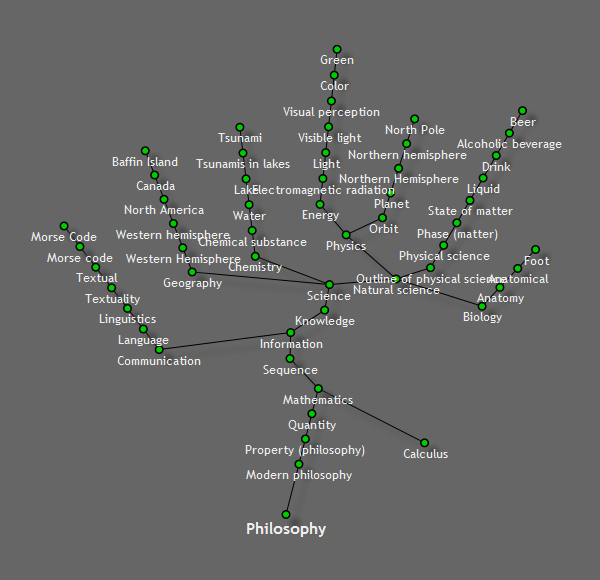Apples, porcupines, and the most obscure Bob Dylan song – is every topic a few clicks from
Philosophy? Within Wikipedia, the surprising answer is yes: nearly all paths lead to Philosophy.
- Mark Ibrahim, Christopher Danforth, & Peter Dodds's (2017, p. 21) 'Connecting every bit of knowledge'
Six Degrees of Francis Bacon
|
|
|---|---|

(Ibrahim, Danforth, & Dodds, 2017, p. 27) |
|

|
|
Background image taken from: https://cdn.asiatatler.com/asiatatler/i/th/2020/02/04101225-aurora-1185464-1920_cover_1920x1280.jpg This website has been coded using html, css, and js and is dedicated to B and H .